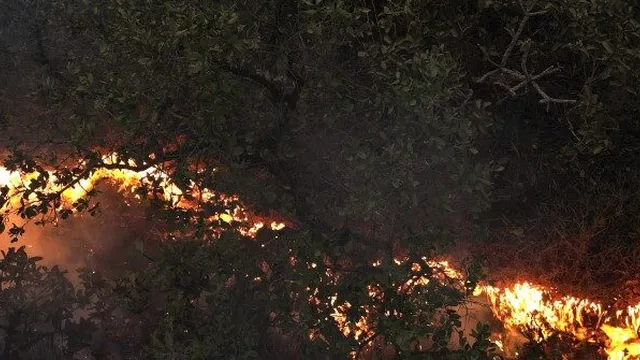
Amazon Fires Cause Smoke Crisis in Argentina and Uruguay
2024-09-09 00:00- In 2024, the Amazon rainforest is facing the most severe fires in over a decade, with the highest number of fires recorded since 2010.
- Smoke from these fires has reached Argentina and Uruguay, prompting health warnings and advisories for citizens to avoid outdoor activities.
- The lack of condemnation from celebrities who previously criticized Bolsonaro's policies raises questions about their commitment to environmental issues.
Express your sentiment!
Insights
In 2024, the Amazon rainforest is experiencing unprecedented fires, the worst in over a decade, under the leadership of President Luiz Inácio Lula da Silva. The World Wildlife Fund (WWF) reported that the number of fires in the first eight months of the year is the highest since 2010. The fires have spread into Bolivia, burning nearly 4 million hectares, prompting Bolivian authorities to declare a national emergency and issue health warnings due to smoke affecting air quality. Argentina's National Weather Service issued a warning regarding the arrival of smoke from the Amazon fires, affecting Buenos Aires and 13 other provinces. Citizens were advised to avoid outdoor activities and take protective measures for respiratory health. The smoke was expected to arrive on a Monday, with potential dissipation due to incoming Patagonian winds by midweek. In Uruguay, meteorologist Mario Bidegain indicated that the smoke cloud could cover nearly the entire country, including the capital, Montevideo. Previous weather conditions had temporarily cleared the smoke, but the return of certain wind patterns raised concerns about its re-emergence. The situation was expected to worsen before a new cold front could sweep the smoke away. Despite the severity of the current fires, notable celebrities who previously condemned the actions of former President Jair Bolsonaro have remained silent regarding Lula's administration. This silence contrasts sharply with the vocal campaigns against Bolsonaro, raising questions about the consistency of celebrity activism in response to environmental crises.
Contexts
In 2024, Brazil experienced an alarming 80% rise in wildfires, particularly in August, with significant fires affecting the Amazon and Pantanal regions. Over 70% of municipalities faced drought conditions, leading to severe economic losses, particularly in São Paulo, estimated at $1 billion reais. The poor air quality resulting from these fires has caused a 60% increase in emergency medical visits, disproportionately impacting vulnerable populations such as children and the elderly. The smoke from these wildfires has extended beyond Brazil, causing a smoke crisis in neighboring Argentina and Uruguay. This environmental disaster has raised concerns about public health and safety in these countries, as residents are exposed to hazardous air quality. The situation has been exacerbated by illegal mining operations in the Amazon, which have increasingly relied on satellite internet services like Starlink for communication. This reliance has raised concerns about the influence of technology on environmental degradation and the governance of natural resources in the region. As the fires continue to rage, the interconnectedness of environmental, economic, and health issues highlights the urgent need for coordinated responses to address the ongoing crisis in the Amazon and its impact on surrounding countries.